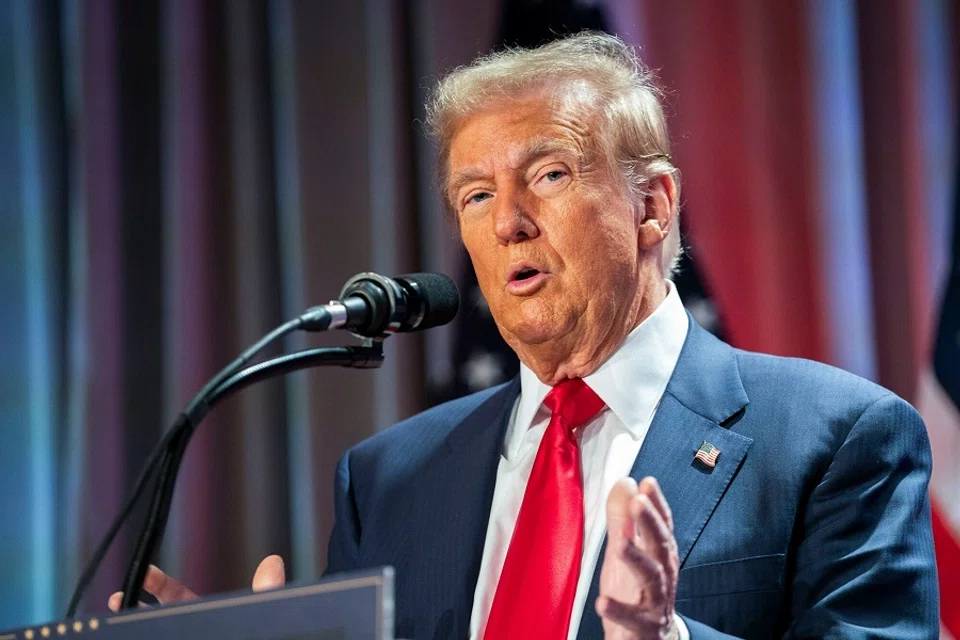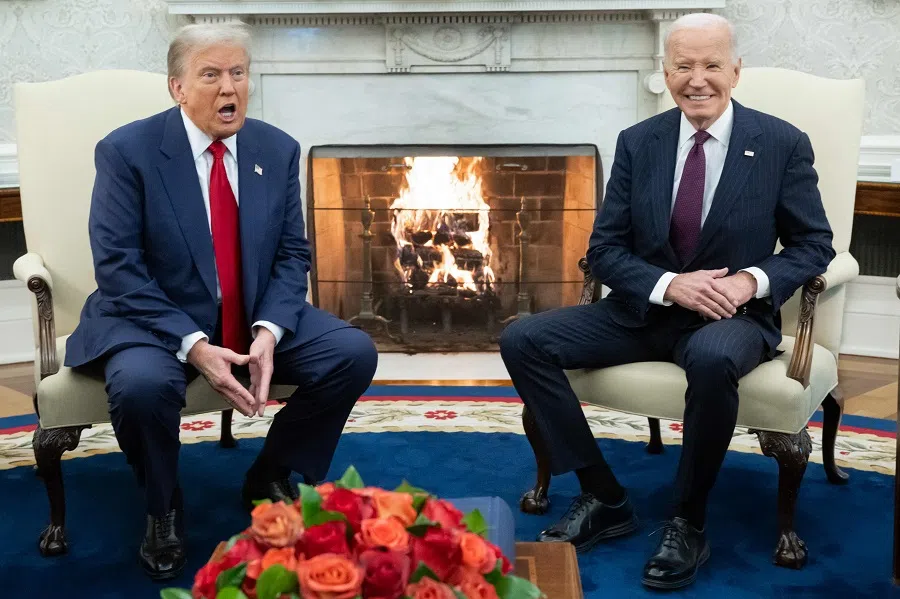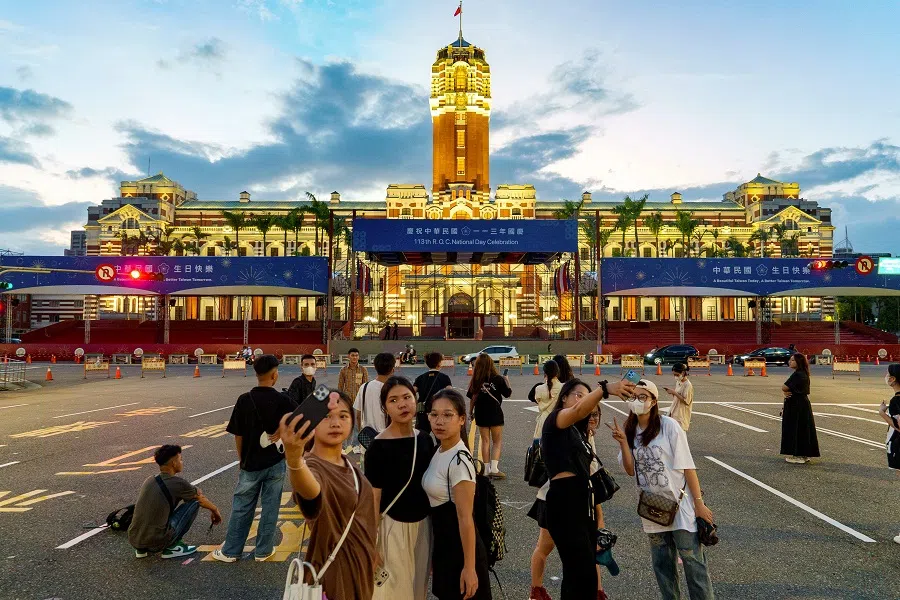How China will deal with Trump 2.0
After his decisive victory, Donald Trump appears poised to reshape both the US and the world stage. Chinese academic Zhu Feng argues that while a second Trump term will bring significant domestic and foreign policy shifts, China will maintain its current course.

In the 2024 US presidential election, Republican candidate Donald Trump secured a second presidency with 312 electoral votes, decisively defeating Democratic candidate Kamala Harris, who received only 226 electoral votes.
Trump not only secured all the electoral votes from the seven swing states but also led Harris by three million votes in the nationwide popular vote count. At the same time, the Republicans also defeated the Democrats to win majorities in both the House of Representatives and Senate.
Since the 2004 US presidential election, no Republican has achieved such a significant electoral advantage. Trump has undoubtedly become an undisputed leader of the Republican party.
Facing an America-First US
Trump 2.0 will bring about significant changes to the US’s domestic and external policies. This stems not only from the policy positions of the far-right conservative wing of the Republican party, which Trump has consistently championed; more importantly, following his decisive victory in this year’s presidential election, Trump appears to have the confidence and determination to reshape both the US and the world.
Firstly, Trump will expand his presidential power, using his administration team and policy proposals to override the long-established practices of the “deep state” within the US administrative system, including appointing a special prosecutor to investigate incumbent US President Joe Biden and his family.
Secondly, Trump will overhaul the Biden administration’s immigration policies and strictly control immigrants, expand the construction of barriers along the US-Mexico border and conduct mass deportation of illegal immigrants, with plans to deport over one million of them annually.
Equally worrying is the fact that after Trump returns to power, the US will enter an era of strongman politics that could trigger a new era of strongman confrontation in global politics.

Next, he intends to increase tariffs, including a blanket 10% on all imports, and an additional 60% to 100% on Chinese goods, threatening a second trade war with the country.
Also, he will fully commit to oil and gas development and the construction of new nuclear power plants, and may even announce a withdrawal from the Paris climate agreement again. At the same time, Trump will implement his “America First” strategy and policy agenda, demanding increased defence spending from US allies while simultaneously undermining global governance mechanisms and international rules.
Indeed, the international community will face a populist and America First-orientated US, effectively marking the end of globalisation. Equally worrying is the fact that after Trump returns to power, the US will enter an era of strongman politics that could trigger a new era of strongman confrontation in global politics.
Decoupling from China possible?
Trump’s return to power may not substantially adjust or change US policy towards China. He was the first to define China as a “strategic competitor” in 2017 during his first term in office, and the outbreak of the Covid-19 pandemic in 2020 was the straw that broke the camel’s back in China-US relations. During Biden’s nearly four-year administration, US policy towards China was in fact “Trumpism without Trump”.
... it is highly likely that the US will strongly push for a second trade war against China, primarily targeting it with aggressive trade protectionist measures.
In the Trump 2.0 era, the US will continue its aggressive suppression and containment of China. Curbing China’s strategic competitiveness and widening the power gap between the US and China will be at the core of the second Trump administration’s China strategy.
Alongside efforts to reduce US dependence on Chinese supply chains, it is highly likely that the US will strongly push for a second trade war against China, primarily targeting it with aggressive trade protectionist measures.

During his campaign, Trump threatened to impose 60% tariffs on Chinese exports to the US and revoke China’s permanent normal trade relations (PNTR), which was renewed by the Bill Clinton administration in 1994. PNTR, originally the “most favoured nation” status, does not entail special treatment and simply signifies standard trade relations with the US. If Trump adopts an aggressive exclusionary trade policy against China after returning to the White House, a significant setback in China-US economic and trade relations is inevitable.
However, even with Trump’s punitive trade tariffs against China, there is still reasonable space for the two countries to reach a solution.
Both Biden and Trump advocated for reducing reliance on China’s supply chain, but in reality, it is difficult for the US to “decouple” from China. As of October 2024, China remains the second largest source of US imports, and Chinese demand for US goods remains strong. The Biden administration’s chip and tech wars against China have effectively reduced US high-end semiconductor companies’ chip exports to China, resulting in a significant decline in revenue for companies such as Nvidia in the third quarter of 2024.
Once the Trump administration comes into office, the suppression of China through trade and tech wars would not change substantively. On 15 January 2020, then China’s Vice-Premier Liu He signed the Phase One Trade Deal with Trump at the White House. However, the subsequent Covid-19 pandemic became the straw that broke the camel’s back in China-US relations.
However, even with Trump’s punitive trade tariffs against China, there is still reasonable space for the two countries to reach a solution.
Taiwan issue unlikely to spiral out of control
The Taiwan issue would be another major focus of China-US relations after Trump takes office. The ongoing tension in the Taiwan Strait is fundamentally due to changes in US policy towards China and Taiwan.
In January 1979, when China and the US officially established diplomatic relations, the Jimmy Carter administration acknowledged that there was only one China in the world, both sides of the Taiwan Strait belonged to China, and the People’s Republic of China was the sole legitimate representative of China.
... both China and the US are aware of the red lines regarding Taiwan, and it is unlikely that the Taiwan issue would get out of control in the near future.

At that time, the US essentially accepted China’s stance on the Taiwan issue in order to align with China against the Soviet Union. However, the US today views China as its greatest strategic competitor, and the Taiwan issue has become a “Taiwan card” for the US to provoke and disrupt China.
The Trump 2.0 administration would most likely continue to stoke tensions over the Taiwan issue. However, both China and the US are aware of the red lines regarding Taiwan, and it is unlikely that the Taiwan issue would get out of control in the near future.
Ending conflicts
The second Trump administration’s efforts to bring about a ceasefire in the Ukraine war could serve as a point of cooperation in China-US geopolitical relations. If Trump decides to significantly reduce military and financial aid to Ukraine, it could create important conditions for advancing a ceasefire. China would welcome a ceasefire and peace talks in Ukraine.
Improved US-Russia relations would also help ameliorate the dangerous situation of North Korea sending troops to aid Russia in combat.
The prolonged, expanded and intensified nature of the Ukraine war is currently the most dangerous major power confrontation in world politics. Russia’s deepening military cooperation with North Korea is a result of the US and Europe’s persistent refusal to reduce large-scale military aid to Kyiv, further exacerbated by their provision of long-range missiles to Ukraine for strikes against Russia.
However, China will not join a new comprehensive military and security cooperation agreement with Russia and North Korea — China will not “return to 1950”. Any form of geopolitical division and bloc confrontation in East Asia are not aligned with China’s interests.
Since the Biden administration took office, the US, Japan and South Korea’s strengthened military and security cooperation, resumption of trilateral military exercises against North Korea, as well as enhanced intelligence and cyber cooperation, have similarly failed to reduce tensions on the Korean peninsula.

As the power struggle between China and the US becomes more balanced, the US has firmly identified China as its greatest rival, making it difficult to substantially ease China-US tensions in the short to medium term.
The essence of major power politics revolves around endless competition for power, wealth and technology. However, conflict and tension between China and the US must be promptly managed and reasonably mitigated, with the fundamental goal of avoiding conflict escalation and uncontrollable deterioration. To achieve this, it is crucial to avoid crossing each other’s red lines, and to reduce misguidance, misjudgments and miscommunications.
China will maintain political, economic, social and cultural exchanges with the US, and insist on a China-US relation grounded in people-to-people exchanges.
China will continue to firmly reject a new Cold War and fall into the geopolitical bloc confrontation trap created by the US in East Asia. It will adhere to a policy tone towards the US based on mutual respect, peaceful coexistence and win-win cooperation, emphasising a willingness to initiate dialogue and consultations to manage any potential escalations in trade wars, tech wars, or other disputes and potential conflicts.
Meanwhile, China will maintain political, economic, social and cultural exchanges with the US, and insist on a China-US relation grounded in people-to-people exchanges. Against this backdrop, the “Musk effect” in a potential Trump 2.0 administration would be worth noting.
This article was first published in Lianhe Zaobao as “特朗普2.0版的美国与中美关系”.





